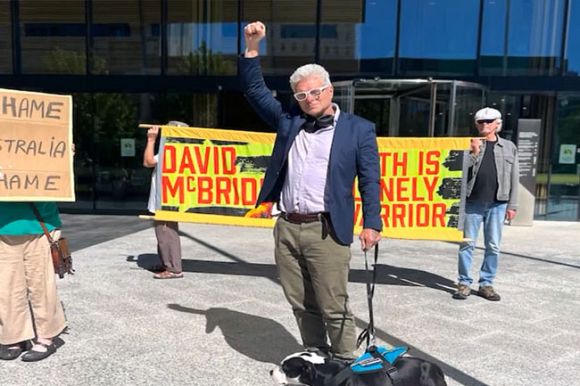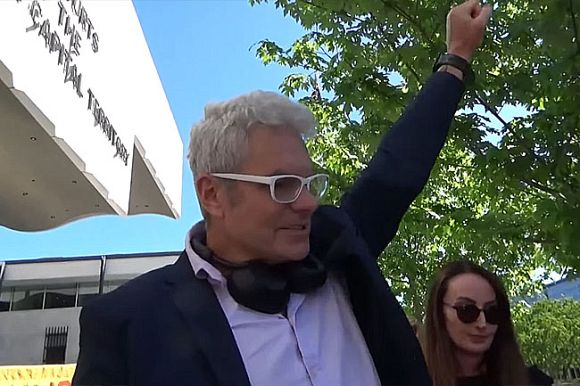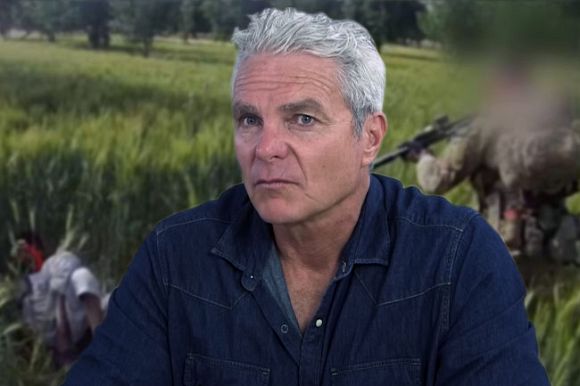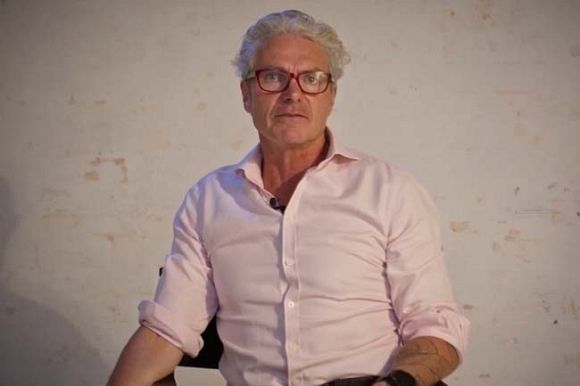The persecution of whistleblower David McBride is another nail in the coffin of free speech, but also provides good reason for Australia to become a republic, writes Dr John Jiggens.
LAST WEEK, David McBride was prosecuted in the Supreme Court of the A.C.T. for the “crime” of releasing the Afghan Files to the ABC. The prosecution argued that under the Defence Act, defence people must treat information as confidential and can’t disclose it unless authorised. As David McBride did not have the authority to disclose the Afghan Files information to ABC journalists, and he had a duty not to disclose this information, which he broke, he needed to be prosecuted and disciplined.
McBride always admitted that he had acted without the consent of a senior office when he released the Afghan Files documents to the ABC, because his attempt to take the matter through the right channels was ignored. Consequently, his lawyers intended to argue a public interest defence for his actions. The Crown countered that there could be no public interest defence because the sole duty of a soldier is to follow orders.
At the heart of David McBride’s trial was the question: who does an Australian soldier serve? For the Crown, lawyer Trish McDonald argued that the answer was clear. An Australian soldier did not serve Australia, or the Australian people or the public interest — the person they served was the King of England, Charles the Third.
Said the Crown:
To interpret ‘serve’ to mean to act in the public interest, is to turn on its head service to king or queen. It was not for the soldier to do whatever he thinks is right.
Nowhere in the oath [of allegiance] does it refer to public interest or that a soldier must act in the public interest. If it were, Parliament would have said so.
This was certainly a strong argument — for an Australian republic!
Trish McDonald relied on a 19th-century authority on military justice and statutory powers, written well before the Commonwealth of Australia existed, which she quoted:
“There is nothing so dangerous to the civil establishment of the state as an undisciplined or reactionary army.”
For the Crown, the corollary of this antique view was that if soldiers were allowed any duty other than to obey orders, the result would be an undisciplined army.
The Defence countered:
“The duty to serve the sovereign does not require blind obedience to orders.”
They asked that the judge should allow a public interest defence and instruct the jury on the law that would allow the jury to decide on the consequences of McBride’s action.
The Defence argued:
“In the 21st Century for the Crown to make the assertion that to obey unquestionably the orders of superiors ignores the Nuremberg Trials and the acceptance in our society that members of the military have higher duties.”
There were multiple duties for members of the Australian Defence Force (ADF), one of which was to obey orders. But there were many other duties and they could conflict and compete, the Defence argued. McBride’s actions were in the public interest of the army and Australia, the Defence asserted, and they wanted a jury trial to decide this.
Neither Trish McDonald nor His Honour Justice David Mossop bothered to respond to the Nuremberg argument. Not only did they ignore Nuremberg (1945), even more egregiously, they ignored Brereton (2020).
Was the ADF a disciplined force in Afghanistan? Did McBride’s action transform it into an undisciplined force? Or did his actions force the ADF to become a better-disciplined force?
Clearly, McBride’s actions led to the Brereton Report, and Major General Paul Brereton, the Inspector General of Defence, judged the ADF to be such an undisciplined force, he considered stripping them all of their medals of service.
The reason David McBride wanted a jury trial was he wanted a panel of his peers to consider the consequences of his action and give their response on whether they considered this a crime, without relying on some antique relic from before the birth of the Commonwealth of Australia to decide. McBride wanted to be able to argue a public interest defence for his actions before a jury of his peers and to let them be his judge.
This was decidedly not what the Crown wanted.
They asked the judge to instruct the jury:
“There is no aspect of the accused’s duty as a military officer arising by virtue of the oath that allows him to act in the Australian public interest when that is contrary to a lawful order he’s been given.”
His Honour Justice Mossop complied.
He would instruct the jury, Mossop decided, that McBride had no public interest defence. McBride’s solitary duty was to obey orders and since he hadn’t, this decision stripped McBride of his public interest defence and made his conviction almost certain.
The final blow for McBride fell on Thursday 16 November, when the court was closed down under the National Security Act. A large contingent of men in suits from the Attorney-General’s department entered and confiscated all the files that the Defence had planned to use to argue McBride’s public interest defence.
Stripped of his defence and his evidence, McBride was left with no option but to plead guilty, which he did on Friday. The judge ordered a pre-assessment for an Intensive Correction Order be prepared. The Crown did not oppose bail.
McBride will be sentenced on 24 January 2024.
So it goes. Eight out of eight whistleblowers will tell you this is the script that is always followed: the spotlight is turned on the whistleblower so the guilty can distract attention from the real crimes. No doubt, they would use a C-word to describe this: Cover-up.
To return to Brereton, there is no recommendation in the Brereton Report to prosecute the whistleblower. So who decided to prosecute David McBride?
What Brereton actually recommended was an investigation by the Australian Federal Police — not of the whistleblower, but of horrendous war crimes.
The Brereton Report found credible evidence of 39 murders of civilians and prisoners by (or at the instruction of) members of the Australian special forces, which were subsequently covered up by ADF personnel. The unlawful killings discussed in the Brereton Report began in 2009, with most occurring in 2012 and 2013 in Uruzgan.
The report stated 25 ADF personnel were involved in the killings, including those who were accessories to a 2012 incident Brereton described as “possibly the most disgraceful episode in Australian military history”. The details of this episode were redacted in Brereton’s public report.
Brereton charged the AFP with the responsibility to investigate the alleged war crimes and prepare prosecutions. However, for the past month, I have had concerns that the Australian Federal Police are not investigating war crimes in Uruzgan.
My concerns arose in October when I heard a talk by a local north coast filmmaker who had visited Uruzgan province in May 2023. He was told the most harrowing stories by locals about Australian forces, mainly a group that they described as the bearded devils, who came in helicopters at night in raids. They spoke of one particular raid where they claimed that 56 members of their three villages had been killed.
Distressed, the filmmaker had contacted the Australian Federal Police who explained they couldn’t investigate on the ground in Uruzgan because Australian authorities did not recognise the new Afghan Government.
I contacted the AFP some weeks ago to confirm this story and to find out if the AFP had an active investigation in Uruzgan province. So far, they have not replied. Hopefully, I shall hear from them shortly.
In the meantime, all the Australian public has witnessed as a result of Brereton is this disgraceful persecution of the whistleblower.
Dr John Jiggens is a writer and journalist currently working in the community newsroom at Bay-FM in Byron Bay.
Related Articles
- David McBride verdict a sad day for democracy
- Whistleblower David McBride's duty to obey results in guilty plea
- David McBride facing life sentence as war criminals go unpunished
- David McBride should be protected, not prosecuted
 This work is licensed under a Creative Commons Attribution-NonCommercial-NoDerivs 3.0 Australia License
This work is licensed under a Creative Commons Attribution-NonCommercial-NoDerivs 3.0 Australia License
Support independent journalism Subscribe to IA.
















